Wednesday, November 16th 2011

Intel Celebrates 40 Years of the Microprocessor
On this day 40 years ago, Intel Corporation introduced the world's first commercially available microprocessor - the Intel 4004 - triggering the start of the digital revolution. While most people have never seen a microprocessor, devices that contain them have become so integrated into daily life that they have become virtually indispensible.
Microprocessors are the "brains" inside computers, servers, phones, cars, cameras, refrigerators, radios, TVs and many other everyday devices. The proliferation of microprocessors is due in large part to Intel's relentless pursuit of Moore's Law, a forecast for the pace of silicon technology development that states that roughly every 2 years transistor density of semiconductors will double, while increasing functionality and performance and decreasing costs. It has become the basic business model for the semiconductor industry for more than 40 years.For example, compared to the Intel 4004, today's second-generation Intel Core processors are more than 350,000 times the performance and each transistor uses about 5,000 times less energy. In this same time period, the price of a transistor has dropped by a factor of about 50,000.
Future microprocessors developed on Intel's next-generation 22nm manufacturing process are due in systems starting next year and will deliver even more energy-efficient performance as a result of the company's breakthrough 3-D Tri-Gate transistors that make use of a new transistor structure. These novel transistors usher in the next era of Moore's Law and make possible a new generation of innovations across a broad spectrum of devices.
While looking back to see how much things have changed since the microprocessor's introduction, it's astounding to think about the future and how this digital revolution will continue at a rapid pace as microprocessor technology continues to evolve.
"The sheer number of advances in the next 40 years will equal or surpass all of the innovative activity that has taken place over the last 10,000 years of human history," said Justin Rattner, Intel chief technology officer.
Such advances in chip technology are paving the way for an age when computing systems will be aware of what is happening around them, and anticipate people's needs. This capability is poised to fundamentally change the nature of how people interact with and relate to information devices and the services they provide. Future context-aware devices ranging from PCs and smartphones to automobiles and televisions, will be able to advise people and guide them through their day in a manner more like a personal assistant than a traditional computer.
Reflections and Predications: The Impact of the Microprocessor
To celebrate the past 40 years of microprocessor innovation and look ahead at the next 40 years, Intel compiled photos, video interviews, opinion pieces and a number of info graphics and other materials with insight from Intel and industry executives, analysts, futurists and engineers.
Microprocessors are the "brains" inside computers, servers, phones, cars, cameras, refrigerators, radios, TVs and many other everyday devices. The proliferation of microprocessors is due in large part to Intel's relentless pursuit of Moore's Law, a forecast for the pace of silicon technology development that states that roughly every 2 years transistor density of semiconductors will double, while increasing functionality and performance and decreasing costs. It has become the basic business model for the semiconductor industry for more than 40 years.For example, compared to the Intel 4004, today's second-generation Intel Core processors are more than 350,000 times the performance and each transistor uses about 5,000 times less energy. In this same time period, the price of a transistor has dropped by a factor of about 50,000.
Future microprocessors developed on Intel's next-generation 22nm manufacturing process are due in systems starting next year and will deliver even more energy-efficient performance as a result of the company's breakthrough 3-D Tri-Gate transistors that make use of a new transistor structure. These novel transistors usher in the next era of Moore's Law and make possible a new generation of innovations across a broad spectrum of devices.
While looking back to see how much things have changed since the microprocessor's introduction, it's astounding to think about the future and how this digital revolution will continue at a rapid pace as microprocessor technology continues to evolve.
"The sheer number of advances in the next 40 years will equal or surpass all of the innovative activity that has taken place over the last 10,000 years of human history," said Justin Rattner, Intel chief technology officer.
Such advances in chip technology are paving the way for an age when computing systems will be aware of what is happening around them, and anticipate people's needs. This capability is poised to fundamentally change the nature of how people interact with and relate to information devices and the services they provide. Future context-aware devices ranging from PCs and smartphones to automobiles and televisions, will be able to advise people and guide them through their day in a manner more like a personal assistant than a traditional computer.
Reflections and Predications: The Impact of the Microprocessor
To celebrate the past 40 years of microprocessor innovation and look ahead at the next 40 years, Intel compiled photos, video interviews, opinion pieces and a number of info graphics and other materials with insight from Intel and industry executives, analysts, futurists and engineers.
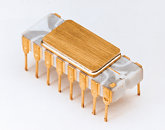
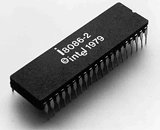
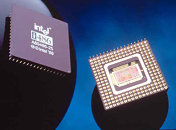
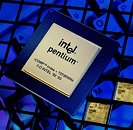
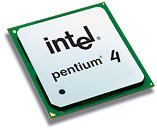
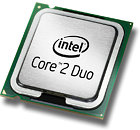
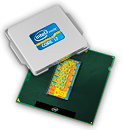
34 Comments on Intel Celebrates 40 Years of the Microprocessor
It's all about the Pentiums, baby
Uhh, uh-huh, yeah
Uhh, uh-huh, yeah
It's all about the Pentiums, baby
It's all about the Pentiums, baby
It's all about the Pentiums! (It's all about the Pentiums, baby)
It's all about the Pentiums! (It's all about the Pentiums, baby)
Yeah
What y'all wanna do?
Wanna be hackers? Code crackers? Slackers
Wastin' time with all the chatroom yakkers?
9 to 5, chillin' at Hewlett Packard?
Workin' at a desk with a dumb little placard?
Yeah, payin' the bills with my mad programming skills
Defraggin' my hard drive for thrills
I got me a hundred gigabytes of RAM
I never feed trolls and I don't read spam
Installed a T1 line in my house
Always at my PC, double-clickin' on my mizouse
Upgrade my system at least twice a day
I'm strictly plug-and-play, I ain't afraid of Y2K
I'm down with Bill Gates, I call him "Money" for short
I phone him up at home and I make him do my tech support
It's all about the Pentiums, what?
You've gotta be the dumbest newbie I've ever seen
You've got white-out all over your screen
You think your Commodore 64 is really neato
What kinda chip you got in there, a Dorito?
You're usin' a 286? Don't make me laugh
Your Windows boots up in what, a day and a half?
You could back up your whole hard drive on a floppy diskette
You're the biggest joke on the Internet
Your database is a disaster
You're waxin' your modem, tryin' to make it go faster
Hey fella, I bet you're still livin' in your parents' cellar
Downloadin' pictures of Sarah Michelle Gellar
And postin' "Me too!" like some brain-dead AOL-er
I should do the world a favor and cap you like Old Yeller
You're just about as useless as jpegs to Hellen Keller
It's all about the Pentiums! (It's all about the Pentiums, baby)
It's all about the Pentiums! (It's all about the Pentiums, baby)
It's all about the Pentiums! (It's all about the Pentiums, baby)
It's all about the Pentiums! (It's all about the Pentiums, baby)
Now, what y'all wanna do?
Wanna be hackers? Code crackers? Slackers
Wastin' time with all the chatroom yakkers?
9 to 5, chillin' at Hewlett Packard?
Uh, uh, loggin' in now
Wanna run wit my crew, hah?
Rule cyberspace and crunch numbers like I do?
They call me the king of the spreadsheets
Got 'em printed out on my bedsheets
My new computer's got the clocks, it rocks
But it was obsolete before I opened the box
You say you've had your desktop for over a week?
Throw that junk away, man, it's an antique
Your laptop is a month old? Well that's great
If you could use a nice, heavy paperweight
My digital media is write-protected
Every file inspected, no viruses detected
I beta tested every operation system
Gave props to some, and others? I dissed 'em
While your computer's crashin', mine's multitaskin'
It does all my work without me even askin'
Got a flat-screen monitor forty inches wide wide
I believe that your says "Etch-A-Sketch" on the side
In a 32-bit world, you're a 2-bit user
You've got your own newsgroup, "alt.total-loser"
Your motherboard melts when you try to send a fax
Where'd you get your CPU, in a box of Cracker Jacks?
Play me online? Well, you know that I'll beat you
If I ever meet you I'll control-alt-delete you
What? What? What? What? What?
It's all about the Pentiums! (It's all about the Pentiums, baby)
It's all about the Pentiums! (It's all about the Pentiums, baby)
It's all about the Pentiums! (It's all about the Pentiums, baby)
It's all about the Pentiums! (It's all about the Pentiums, baby)
Now, what y'all wanna do?
Wanna be hackers? Code crackers? Slackers
Wastin' time with all the chatroom yakkers?
9 to 5, chillin' at Hewlett Packard?
What??
The title makes it sound like Intel invented the processor 40 years ago.
Instead of Intel invented their first processor 40 years ago. BIG difference. Not one I am sure most readers will get though.
EDIT: Just read through a couple of the most recent posts. So glad TPU readers prove me wrong despite TPUs efforts :)